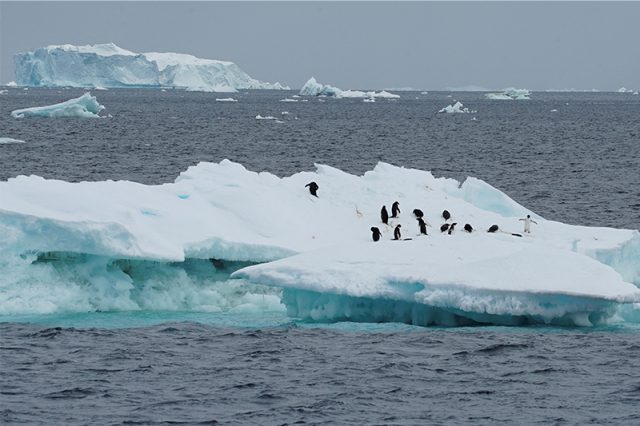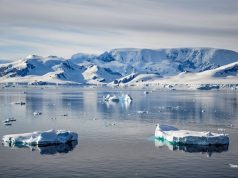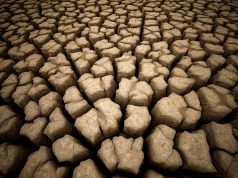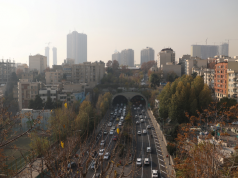
SINGAPORE— Rapidly melting Antarctic ice is dramatically slowing down the flow of water through the world’s oceans, and could have a disastrous impact on global climate, the marine food chain and even the stability of ice shelves, new research has found.
The “overturning circulation” of the oceans, driven by the movement of denser water towards the sea floor, helps deliver heat, carbon, oxygen and vital nutrients around the globe.
But deep ocean water flows from the Antarctic could decline by 40% by 2050, according to a study published on Wednesday in the journal Nature.
“That’s stunning to see that happen so quickly,” said Alan Mix, a paleoclimatologist at Oregon State University and co-author on the latest Intergovernmental Panel on Climate Change assessments, who was not involved in the study. “It appears to be kicking into gear right now. That’s headline news.”
As temperatures rise, freshwater from Antarctica’s melting ice enters the ocean, reducing the salinity and density of the surface water and diminishing that downward flow to the sea’s bottom.
While past research has looked at what could happen to similar overturning circulation in the North Atlantic – the mechanism behind the doomsday scenario that would see Europe suffer from an Arctic blast as heat transport falters – less has been done on Antarctic bottom water circulation.
Scientists relied on around 35 million computing hours over two years to crank through a variety of models and simulations up to the middle of this century, finding deepwater circulation in the Antarctic could weaken at twice the rate of decline in the North Atlantic.
“They are massive volumes of water… and they are bits of the ocean that have been stable for a long time,” said study co-author Matthew England, an oceanographer at the University of New South Wales, in a news briefing.
Base of the food chain
The effect of meltwater on global ocean circulation has not yet been included in the complex models used by the IPCC to describe future climate change scenarios, but it is going to be considerable, England said.
Ocean overturning allows nutrients to rise up from the bottom, with the Southern Ocean supporting about three-quarters of global phytoplankton production, the base of the food chain, said a second study co-author, Steve Rintoul.
“If we slow the sinking near Antarctica, we slow down the whole circulation and so we also reduce the amount of nutrients that get returned from the deep ocean back up to the surface,” said Rintoul, a fellow at Australia’s Commonwealth Scientific and Industrial Research Organization (CSIRO).
The study’s findings also suggest the ocean would not be able to absorb as much carbon dioxide as its upper layers become more stratified, leaving more CO2 in the atmosphere.
The study showed that warm water intrusions in the western Antarctican ice shelf would increase, but it did not look at how this might create a feedback effect and generate even more melting.
“It doesn’t include the disaster scenarios,” said Mix. “In that sense, it’s actually kind of conservative.”
—Reporting by David Stanway; Additional reporting by Gloria Dickie in London; Editing by Alex Richardson









